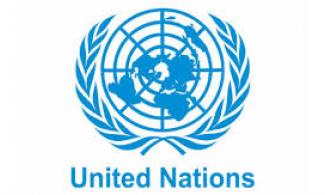
The majority of those displaced are women and children, who face grave protection risks across transit and hosting sites.
The United Nations Office for the Coordination of Humanitarian Affairs has stated that 45,000 residents, mainly women and children, have fled their homes in Geidam and Yunusari areas after Boko Haram attacks escalated in the North-East region.
The UN Agency lamented on Wednesday that the growing number of displaced persons were now in dire need of humanitarian assistance, adding that the homeless women are also in potential danger of predators.

In an electronic mail update sent to SaharaReporters, the UNOCHA stated that after the second attack in less than a week by the non-state armed groups occurred in Yobe State, 30,000 people fled their homes in Kanama town, Yunusari while 15,000 fled theirs in Geidam.
Boko Haram had on May 2 attacked the Yobe towns, the third attack in two weeks.
The insurgents stormed Kanama, headquarters of Yunusari Local Government Area about a week ago, sources said.
They burnt all the government buildings there and the residence of the district head, forcing many residents to abandon their homes.
The Boko Haram also raided Geidam, the hometown of the new Inspector General of Police, Usman Baba.
The UN agency said on Wednesday, "A second attack in less than a week by non-state armed groups occurred in Yobe State, this time in Kanama town, the capital of Yunusari LGA, where an estimated 30,000 people fled for safety. Kanama is about 35 kilometres from Geidam where the first attack occurred on 23 April and 150,000 people were known to have fled to neighbouring towns.
"Ongoing insecurity in Geidam and Kanama towns, as well as remote locations in Yunusari, Yusufari, Bursari and Tarmua LGAs, is impeding access to Internally Displaced Persons. The scarcity of resources to respond to needs remains challenging for government and partners.
"Multiple displacements and unpredictable movements are impacting efforts to identify and register many of the IDPs. New arrivals in host communities have signalled food, shelter, WASH, health and protection services among the most urgent needs.
"The majority of those displaced are women and children, who face grave protection risks across transit and hosting sites. Several children are unaccompanied and family members are still missing.
"The Yobe State Government, humanitarian partners, civil society organisations and host communities continue to provide critical life-saving assistance to IDPs, some repurposing resources earmarked for other programmes to facilitate rapid response to emergency needs."
The UN stated that resource mobilisation efforts by state government and partners are ongoing to ramp up the response, especially as resources of host communities rapidly deplete due to the influx of IDPs.
"OCHA is supporting the State Emergency Management Agency (SEMA) to roll out LGA-level mechanisms to scale up response and identify/register the most vulnerable groups for priority assistance," it added.